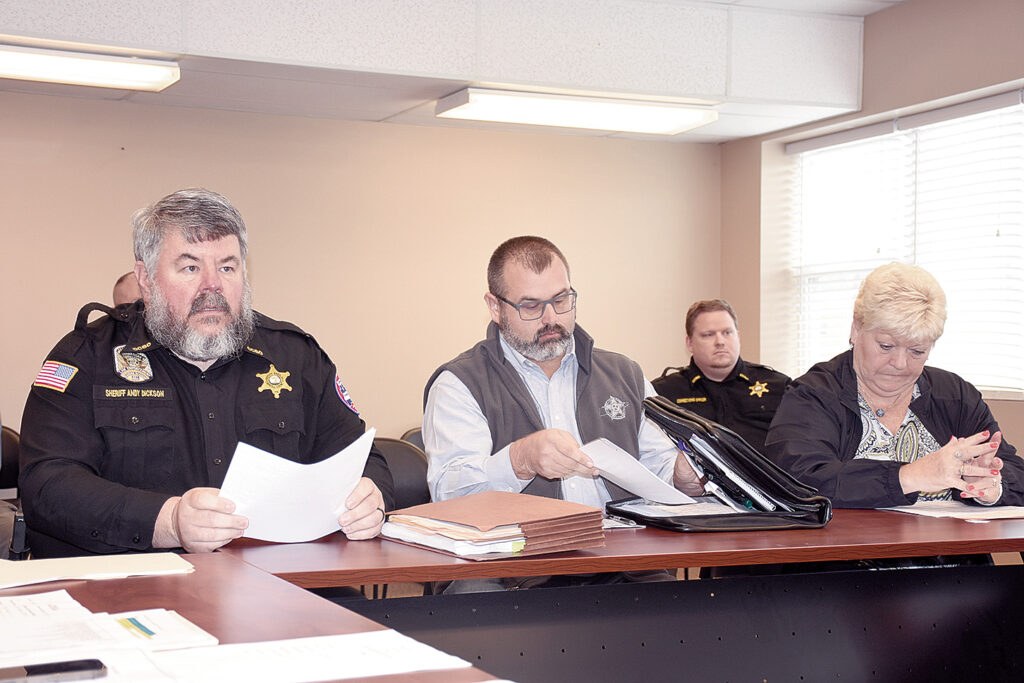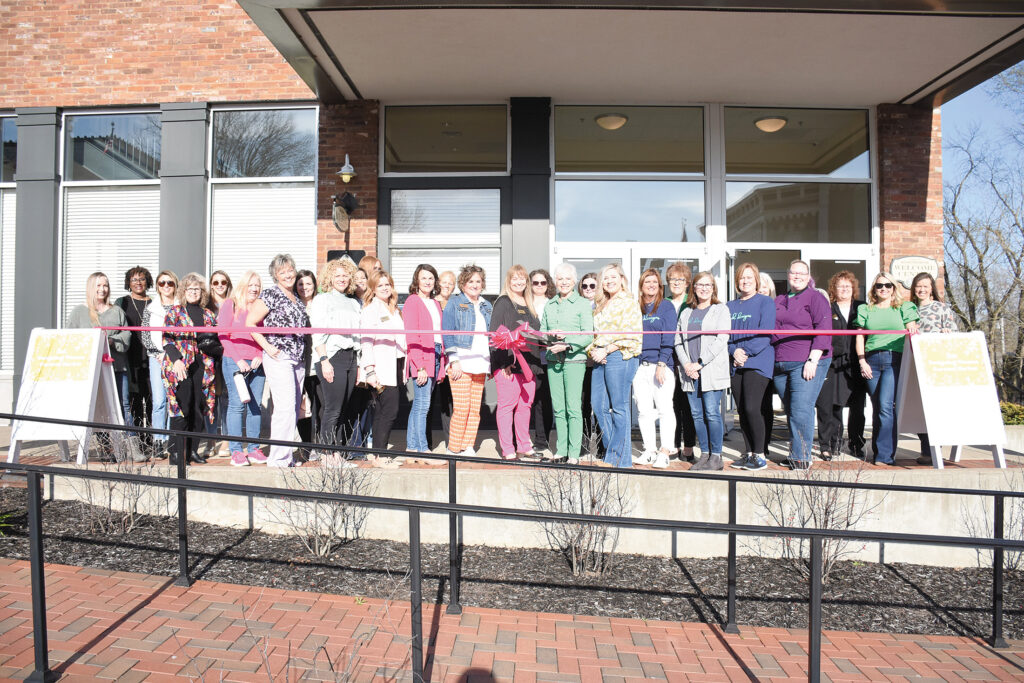Forty percent believe the world will be better than before the coronavirus
Cincinnati, Ohio – While Americans have a high level of anxiety during the coronavirus pandemic, most are willing to make significant sacrifices and many are optimistic about the future. They also believe that government leaders are taking the appropriate actions, according to a new national Research America, Inc. public opinion poll.
Sixty-one percent of Americans say they are “extremely or very concerned” about the coronavirus outbreak, though 13 percent are “not very or not at all concerned.” Nearly half, 47 percent, say the pandemic has had a significant negative impact on their personal life due to closures, cancellations, restrictions and food shortages, said Rex Repass, President of Research America Inc.
“We are at a critical time when many Americans are personally impacted in multiple ways by COVID-19. During the next several weeks many may have a family member or close friend with a positive coronavirus test,” Repass said. “However, most Americans are willing to adhere to their state’s stay-at-home order if it’s for the greater good, with 69 percent saying they can accept extreme limitations for more than a month if it helps to suppress the infection rate. Two-thirds go so far as to say they don’t care how long restrictions are in place if it prevents widespread illness and death.”
On the other hand, about one quarter of respondents, 27 percent, feel the social distancing and other limitations go too far, and only 11 percent said they worry about transmitting the virus to others.
The poll of 600 U.S. adults also found that 75 percent agree with the extreme measures put in place to protect people from the coronavirus. A high number strongly support such measures as mass cancellations and closings (87 percent), travel bans (86 percent), restricted visitation at hospitals, nursing homes, etc. (86 percent) and the closing of borders (82 percent).
“The poll results also show that altruism is alive and well throughout the U.S. with Americans continually demonstrating selfless acts for the well-being of others,” Repass added. “People are clearly more concerned about a family member or friend getting sick than themselves.”
-more-
2-2-2
Nineteen percent are worried someone close to them will die compared to 12 percent who are worried about themselves dying.
Nearly eight-in-10 (78 percent) want politicians to focus on the welfare of the citizens and not on politics. One in four (25 percent) are concerned that the healthcare system will be overburdened, and people won’t get the care needed.
The Center for Disease Control & Prevention received the highest job performance rating, 64 percent satisfaction followed by their state’s governor, 56 percent. A plurality (43 percent satisfied/33 percent dissatisfied) with President Donald Trump, 44 percent with Vice President Mike Pence with the balance unsure or having a “wait and see attitude.”
“This was highly dependent on political party,” Repass said. “As expected, more Republicans were satisfied with President Trump’s handling of the coronavirus pandemic, 73 percent, as compared to Democrats, 22 percent.
Although 20 percent are concerned about the virus causing a economic recession, very few are worried about permanently losing their job, only 7 percent, their company going out of business, 5 percent, or the loss of retirement income from stocks and 401k, 8 percent. More than half, 57 percent, feel confident that their job will be secure throughout the pandemic.
Americans believe there are brighter days ahead with 40 percent saying the world will be a “better place” after the virus has been controlled, compared to 18 percent who believe the world will be worse off. In a year or two, half believe the world will be a better place because people will have an appreciation for what is really important in life, 54 percent; there will be new advancements made in medicine, 52 percent; and people will be more compassionate, 35 percent.
Actions Americans feel will have the most positive impact include paid sick leave for coronavirus recovery for themselves or to care for a family member, 67 percent; expanded SNAP and other benefits, 67 percent; extended unemployment benefits, 66 percent; and highly subsidized, reduced cost, or free medical services for coronavirus treatment and prevention, 65 percent.
Two in five Americans worry about health care costs increasing post coronavirus pandemic, 42 percent, and having to work longer in life than anticipated to offset money lost during this time, 41 percent.
The Research America, Inc. Covid-19 Public Opinion Poll was conducted between March 26-29 among a sample of 600 U.S. adults over the age of 18. The overall confidence interval for the survey is +/- 4.0 percentage points at the 95 percent confidence level.
-more-
3-3-3
Methodology Statement
Results of this Research America, Inc. Covid-19 Public Opinion Poll are based on interviews conducted between March 26-29, 2020 among a national sample of 600 adults over the age of 18 in the United States. Data collection was completed online.
U.S. adults over the age of 18 in all 50 states were sampled for the survey and modeled to age and race demographics based on data from the United States Census Bureau. With online data collection it is not appropriate to apply a probability-based margin of error to interviews completed. However, applying statistical tests of significance to each question asked at the 95 percent confidence interval yields an overall statistical error of +/- 4.0 percentage points based on the 600 interviews. The 95 percent confidence interval varies by question and based on the distribution of responses to each question.
The purpose of the Public Covid-19 Public Opinion Poll is to provide a snapshot of opinion and timely views about Covid-19. Research America Inc. sponsored this survey
About Research America Inc.
Research America Inc. is a custom survey research and strategic consulting firm. The firm’s services range from consulting with clients to identify research objectives, through study design, data collection, analysis, and research-based strategy recommendations. For more information see www.researchamericainc.com.
-more-
4-4-4
Respondent Profile
- Region of United States [n=600]
- Midwest 21%
- Northeast 17%
- South 38%
- West 24%
- Gender [n=600]
- Male 48%
- Female 51%
- Age [n=600]
- 18-24 13%
- 25-34 18%
- 35-44 17%
- 45-54 18%
- 55-64 17%
- 65+ 18%
- Children living in household full time [n=600]
- Yes 36%
- No 64%
- Race [n=600]
- White 63%
- Hispanic 18%
- African American
or Black 12%
- American Indian 1%
- Asian or Pacific Islander 4%
- Alaska Native <0.5%
- Other 2%
- Employment status [n=600]
- Employed full time 42%
- Employed part time 13%
- Not employed outside
of home 6%
- Retired 22%
- Unemployed 14%
- Full time student 4%
5x-5x-5x
- Education [n=600]
- Some High School 4%
- High School/GED 23%
- Some College 27%
- Associates degree 10%
- 4-year college degree 24%
- Graduate or professional
degree or higher 12%
- Household Income [n=600]
- < $49,999 45%
- $50,000-$74,999 20%
- $75,000-$99,999 12%
- $100,000-$149,999 14%
- $150,000 or more 6%
- Prefer not to answer 4%
Questionnaire & Topline Results
DATA COLLECTION: Online Rep Sample Adults 18+
COMPLETED SAMPLE: n=600
FIELD DATES: March 26 – March 29, 2020
SCREENER
The following questions are for classification purposes.
- In what region of the United States do you live?
21% Midwest
17% Northeast
38% South
24% West
- Are you?
48% Male
51% Female
1% Other
- What is your age?
13% 18 to 24 years
18% 25 to 34 years
17% 35 to 44 years
18% 45 to 54 years
17% 55 to 64 years
18% 65 years or older
4. To ensure that we have a representative group of participants, are you from a Hispanic or Spanish speaking background?
18% Yes, Hispanic
82% No, not Hispanic
5. And, for statistical purposes only, what is your race?
75% White
13% African American or Black
2% American Indian
5% Asian or Pacific Islander
<0.5% Alaska Native
6% Other
Introduction:
As everyone knows, the global coronavirus outbreak is having a significant impact on many consumers’ lives. We’d like to ask you some questions about how you feel about the coronavirus outbreak, the impact it has had on your/your family’s life, and your expectations about the future.
- What is your own personal level of fear/anxiety about the coronavirus outbreak?
35% Extremely concerned
26% Very concerned
26% Somewhat concerned
8% Not very concerned
5% Not at all concerned
Anchored – 0 Happy Emoji 10 Frightened Emoji
- In general, how much of an impact on your personal life have events (such as closures, restrictions on group activities, shortages of food products/household items, etc.) related to coronavirus had on your life?
19% Strong negative impact
28% Some negative impact
22% Little or no impact
15% Some positive impact
16% Positive impact
- How much do you agree or disagree with the following statements?
| Agree | Disagree | |
| Extreme measures are necessary to protect Americans from the coronavirus. | 75% | 12% |
| I can live with extreme limitations for a month or two. | 69% | 17% |
| I don’t care how long restrictions are in place if it prevents widespread illness and death. | 66% | 16% |
| Despite HIPAA law protecting patient’s privacy, we have a right to know who has tested positive for the coronavirus and where they have been in the days leading up to their test so we can protect ourselves and the broader community. | 59% | 21% |
| The media is artificially inflating peoples’ fears about the coronavirus pandemic. | 47% | 32% |
| The risks of the coronavirus are being grossly exaggerated by local, state and the federal government. | 32% | 49% |
| The extreme limitations being implemented are ridiculous and totally unnecessary. | 27% | 58% |
- From the list below, what are your top three concerns about the world today? Please select only three.
Health Related
25% Family members/friends getting sick
25% Healthcare system (doctors’ offices, hospitals, etc.) will be overburdened/people won’t be able to get needed care
21% Getting sick
19% Family members/friends dying
12% Dying
11% Transmitting the virus to others
9% Being quarantined at home for an extended period
7% People will be unable to get needed prescription medicines
6% Shortage of coronavirus testing kits/places to get tested
Personal
18% Food (meat, bread, milk, etc.) shortages
9% Shortages of toilet paper, household cleaning products, etc.
7% Social isolation
7% Boredom
7% Personal inconvenience
5% Loss of control
4% Many fun activities are cancelled/closed – gyms, bowling alleys, restaurants, stores, etc.
4% No sports/no sports on TV
School
4% Balancing remote work and teaching my out-of-school kids
4% Reduced quality of education due to online classes
3% Finding things to keep my out-of-school kids busy
3% School year extended into summer due to missed weeks/months
3% Loss of high school or college experience (in-person classes, socialization, graduation ceremonies, etc.)
2% Finding care for out-of-school kids so I can work
Economic
20% Economic impact will cause recession
10% Concern for others who face economic hardship
8% Lost wages if I get sick or my family members get sick
8% People rioting and looting when states go into shelter in place
8% Loss of retirement income from stocks/401K/etc.
7% Permanently losing my job due to negative impacts of the coronavirus
6% Being temporarily laid off work due to the negative impacts of the coronavirus
5% My company going out of business
3% Shortages of products I need to keep my business open
3% Missing mortgage payments
3% Facing housing insecurity
2% Defaulting on student loans
2% Defaulting on business loans
2% Other (Please specify.)
- Which of the following do you believe are appropriate responses to coronavirus? And which do you think are unnecessary/too extreme?
| Appropriate course of action | Unnecessary course of action | |
| Steps to ensure an adequate supply of medical supplies and protective gear for medical workers | 87% | 13% |
| Cancelling public events like parades, concerts, graduations, etc. | 87% | 13% |
| Steps to ensure an adequate supply of prescription medicines | 87% | 13% |
| Closing schools | 87% | 13% |
| Steps to ensure an adequate supply of food and household products | 86% | 14% |
| Restricted visitation at hospitals, nursing homes, prisons, etc. | 86% | 14% |
| Setting up temporary hospitals | 86% | 14% |
| Travel bans/restrictions | 86% | 15% |
| Bars, theaters, gyms, museums, etc. closed | 85% | 15% |
| Taking the temperature or other medical screening steps before allowing entry into a medical facility, such as a doctor’s office, nursing home, or hospital | 85% | 15% |
| 14 day self-quarantine | 85% | 15% |
| Cancelling sporting events – NCAA March Madness tournament, MLB, MLS, hockey, golf | 84% | 16% |
| Temperature monitoring/public screening for coronavirus symptoms | 84% | 16% |
| Restaurant dining rooms closed | 83% | 17% |
| Transitioning to online classes (any grade or level) | 83% | 17% |
| Testing centers in parking lots of neighborhood businesses such as Walmart, Walgreens, CVS | 82% | 18% |
| Closing borders | 82% | 18% |
| Asking customers screening questions about whether they have a temperature or cough or have been exposed to anyone with the virus before entering a business | 80% | 20% |
| Libraries closed | 80% | 21% |
| Statewide shelter-in-place orders | 78% | 22% |
| Delayed April 15 tax filing day to July 15 | 78% | 22% |
| Cuts in interest rates by Federal Reserve | 77% | 23% |
| Restricted purchases of hand sanitizers, TP, etc. | 75% | 25% |
| Shut down of public transportation | 73% | 27% |
| Government offices closed | 69% | 31% |
| Periodical shut-downs of stock market | 67% | 33% |
| Delaying Primary elections | 66% | 34% |
- By postponing school and/or moving to online classes, how prepared do you believe students will be to move ahead in their education?
17% Very prepared
25% Somewhat prepared
41% Neither prepared nor unprepared
10% Somewhat unprepared
8% Very unprepared
- What impact do you think each of the following potential economic recovery steps will have?
| Positive Impact | Negative Impact | |
| Paid sick days for coronavirus recovery for yourself or to care for immediate family members | 67% | 11% |
| Expanded SNAP and other benefits program | 67% | 11% |
| Enhanced/extended unemployment benefits | 66% | 12% |
| Highly subsidized, reduced cost or free medical services for detection, treatment, and eventually immunization against coronavirus | 65% | 10% |
| Low interest loans for small businesses | 62% | 12% |
| Loan deferral (home, student, business, etc.) | 59% | 10% |
| Payroll tax cut | 54% | 16% |
- How satisfied or dissatisfied are you with the response of the following to the coronavirus pandemic?
| Satisfied | Dissatisfied | Uncertain | |
| Centers for Disease Control & Prevention (CDC) | 64% | 10% | 26% |
| Your State’s Governor | 56% | 15% | 29% |
| President Donald Trump | 43% | 33% | 24% |
| Vice President Mike Pence | 44% | 29% | 27% |
| US Congress | 38% | 25% | 37% |
- How confident are you that your job will be secure through the coronavirus pandemic?
29% Extremely confident
18% Very confident
30% Somewhat confident
6% Low confidence
10% Not at all confident
7% Already temporarily laid off or lost job
- In a year or two, to what extent do you think the world will be better or worse as a result of the coronavirus?
7% Much WORSE than it was before the virus
11% Somewhat WORSE than it was before the virus
42% The virus will not change the world for better or for worse
21% Somewhat BETTER than it was before the virus
19% Much BETTER than it was before the virus
- In a year or two, in what ways do you think the world will be BETTER as a result of the coronavirus? Please select all that apply.
54% People will have a better appreciation for what’s really important in life
52% New advancements will be made in medicine
46% People will take better care of their health
39% People will better understand the individual and collective impact we have on the environment
36% Home delivery services will be more prevalent
35% People will be more compassionate to one another
34% People will be more empathetic towards one another
3% Other (please specify)
5% None of these
- In a year or two, in what ways do you think the world will be WORSE as a result of the coronavirus? Please select all that apply.
50% Our taxes will increase to pay for everything going on now
45% People will be afraid to travel, especially outside the US
42% The cost of healthcare will go up
41% People will have to work longer in life to offset the money they lost during this time
35% People will avoid others for fear of getting sick
34% Mental health issues will be even more prevalent
33% People will be more racist towards individuals from China, or who appear to be Chinese
23% It will be difficult for people entering the work force to find jobs
2% Other (please specify)
5% None of these
- How much do you agree or disagree with the following statements?
| Agree | Disagree | |
| Politicians should be more focused on the welfare of American citizens and less concerned about politics | 78% | 7% |
| Small businesses and people who work there are at the greatest risk of losing their jobs and should be supported more than large businesses/national chains | 72% | 7% |
| I have less loyalty to companies that are opportunistic and trying to profit during this time | 69% | 10% |
| Athletes and Hollywood elites getting testing while others can’t get tested makes me less likely to support sports and entertainment in the future | 52% | 18% |
| Social influencers will have less influence on others after the coronavirus | 37% | 17% |
The following questions are for classification purposes only
- To what extent do you identify with a political party?
22% Democrat
19% Leans Democrat
22% Independent
17% Leans Republican
20% Republican
- On most issues, to what extent do you consider yourself liberal or conservative?
9% Very liberal
20% Somewhat liberal
35% Moderate
21% Somewhat Conservative
15% Very Conservative
- Which of the following best describes you?
52% Married/living with a partner
30% Single
13% Divorced/Separated
5% Widowed
- Do you have any children under the age of 18 currently living with you full-time?
36% Yes
64% No
- Which of the following ranges includes your total yearly household income before taxes?
45% Less than $49,999
20% $50,000 to $74,999
12% $75,000 to $99,999
14% $100,000 to $149,999
6% $150,000 or more
4% Prefer not to answer
23a. What is the highest grade or level of schooling you have completed?
1% 8th grade
4% Some High School
23% High School Diploma/GED
27% Some college
10% Associates degree
24% 4-year college degree
12% Graduate or professional degree or higher
- Prior to the coronavirus pandemic, which of the following best describes your employment status?
42% Employed full time
13% Employed part time
6% Not employed outside the home
22% Retired
14% Unemployed
4% Full time student
- Are you currently out of work as a result of the coronavirus?
65% No
35% Yes







